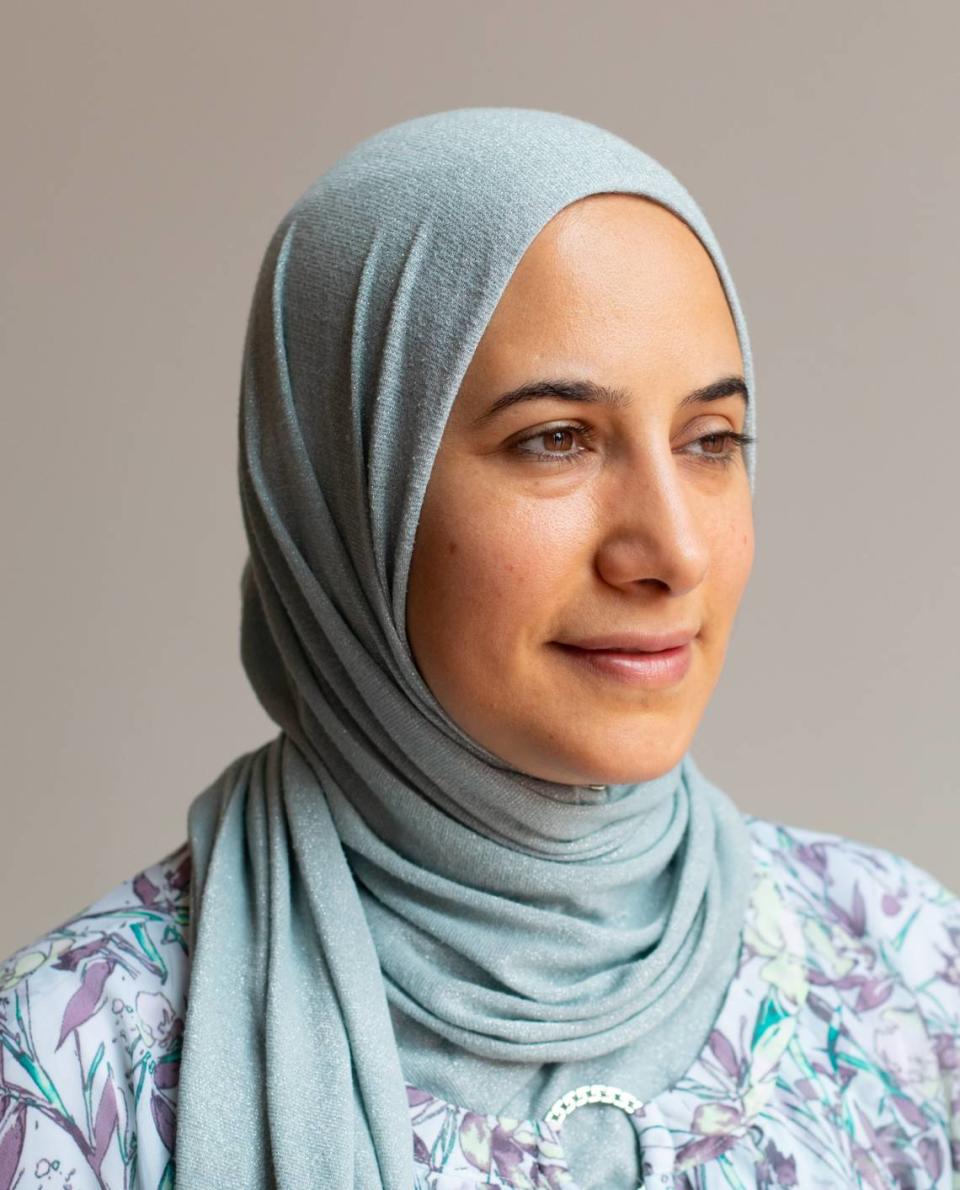‘Terrorist’: My son and I experienced Islamophobia in Charlotte. This hate victimizes us all. | Opinion
The recent news of three Palestinian students shot in Vermont triggers me on a molecular level.
I was only 3 years old when our next-door neighbor called my mother a “rag head,” as she buckled my sister and me into her white station wagon and silently drove us to our daycare in New Brunswick, N.J.

I was 12 when two teenagers fishing at a creek near my parent’s house in Panama City, Fla. yelled out to me, “Do you f--k with that on?” in reference to my headscarf, which I had started wearing in public as a sign of my devotion to God.
As a college freshman in 2002, I had just left the Islamic Center of Tallahassee minutes before Charles Franklin slammed his truck into the front entrance to “let Muslims know they’re not safe in this country.” He was later convicted and jailed.
I never imagined that two decades later, now a mother with two children of my own, I would find myself combating the same level of anti-Arab and anti-Muslim hatred I faced in the days following the 9-11 terrorist attacks. But a week after the horrific Oct. 7 attacks in Israel, a man rolled down his window and yelled “terrorist” at me and my son as we drove home from his soccer practice in Charlotte.
When I heard about the Vermont shooting of three Palestinians my immediate thought was, if the kuffiyeh — the black and white checkered scarf they wore around their necks — made them a target, could my headscarf make me a target?
Islamophobia is not a symptom of individual racism, but systemic racism — a process and dialectic that entrenches the presumption of Muslim guilt.
People like John Eaton, who is charged with shooting three Palestinian students, or Franklin, who drove his truck into my mosque, are not only acting out of individual malice or hatred. Their actions are a consequence of broader Islamophobic discourse perpetuated by the media, film industry and some politicians. That discourse frames Muslim identity as threatening, un-American or inherently violent.
As a professor of Religion, I have been teaching about Muslim representations in pop-culture for several years. My courses explore the ways in which films construct an image of Muslims as an imaginary “other” in the American public consciousness.
From binary representations of Arab women as downtrodden beasts of burden or sex slaves in harems to representations of Arab men as rich, sleazy and dangerous, the images of otherness that Americans consume on their screens have become the dominant lens through which we view the Arab world.
Films teach us lessons, even when we are unconscious of them. For example, in movies like “Rules of Engagement,” “True Lies” and “American Sniper” there is not a single redeeming Muslim character. The message such movies send is that there are no “real victims” in the Arab world and that those who lose their lives to war must deserve it.
This inability to view Muslims as victims plays out in the real world. The failure to humanize Muslim communities or give voice to their perspectives also activates Islamophobia. Whose stories can be told and who has the right to tell them? These questions are not unique to Muslim or Arab minorities in the West, but reflective of many minority communities’ experiences.
The erasure of marginalized communities’ perspectives and voices — whether deliberate or accidental — is the fuel that keeps the fire of systemic racism ablaze.
People are not born hating or fearing Muslims. They are taught that fear or hatred. This is true for my parent’s next-door neighbor in New Jersey, the man who drove his truck into my mosque, and even the man who shot three Palestinian students on their way to dinner.
To tackle the root causes of Islamophobia, we must move beyond condemning individual acts of violence to addressing the systemic ways that hatred is entrenched or justified. When we fall victim to powerful and dehumanizing narratives that justify hate, we are all victims of hate crime. To eliminate it, we must begin by humanizing the other. As a mother and educator, I’ll continue to do just that.
Hadia Mubarak is an assistant professor of Religion at Queens University of Charlotte. She lives in Charlotte with her husband and two children.


